Ubuntu Studio review | Laptop Mag
Our Verdict
Ubuntu Studio is a Linux-based Os focused on content creation that occasionally overcomplicates the things nosotros take for granted in other operating systems.
For
- Quick first-up
- Lightweight OS
- Libre Office
- Direct-forward layout
- Lots of creators tools
- A developers dream
Against
- Installation could be disruptive for some.
- Some of the software included underperforms
- Having to learn lawmaking is not for everyone.
- Too many software options
Laptop Magazine Verdict
Ubuntu Studio is a Linux-based OS focused on content cosmos that occasionally overcomplicates the things we have for granted in other operating systems.
Pros
- +
Quick get-go-up
- +
Lightweight OS
- +
Libre Office
- +
Straight-forward layout
- +
Lots of creators tools
- +
A developers dream
Cons
- -
Installation could exist confusing for some.
- -
Some of the software included underperforms
- -
Having to learn code is non for everyone.
- -
Likewise many software options
For many years, Ubuntu Linux Os has been a lifesaver, bringing many older computers I have owned, inherited, and found, back to life. Since its release back in 2004, it has get one of the most powerful and pop Linux Os in history. Offset off, it's impossible not to honey something that does everything the expensive big boys do only does them for free.
Ubuntu Studio is similar to regular Ubuntu, simply comes with a suite of software geared toward creatives and the productivity standards included in regular Ubuntu builds such as LibreOffice. Almost of the software suite y'all find on Ubuntu Studio is Linux-based and available to download for complimentary. And you can also find a gratuitous version for Mac and PC if you're interested in trying them out on your computer.
Ubuntu Studio: Installation
Installing Ubuntu used to be easier. When I first started using Ubuntu on older machines, I would download the paradigm and fire it to a CD-ROM or DVD (Recollect those ?) and install it like any other Bone. Yous tin can yet do that, but most laptops today and even many desktops do non come with the DVD bulldoze as standard equipment. Then I downloaded the image files and burned them to a 32GB USB memory stick.
The easiest method was to download the Ubuntu Studio prototype and then download Unebootin to create the USB bootable stick. Those were the like shooting fish in a barrel things to practise. I and so selected an Asus VivoBook xv laptop with a ii.three-GHz AMD Ryzen 7 3700U CPU, AMD Radeon RX Vega x GPU, 12GB RAM and 512GB PCIe SSD.
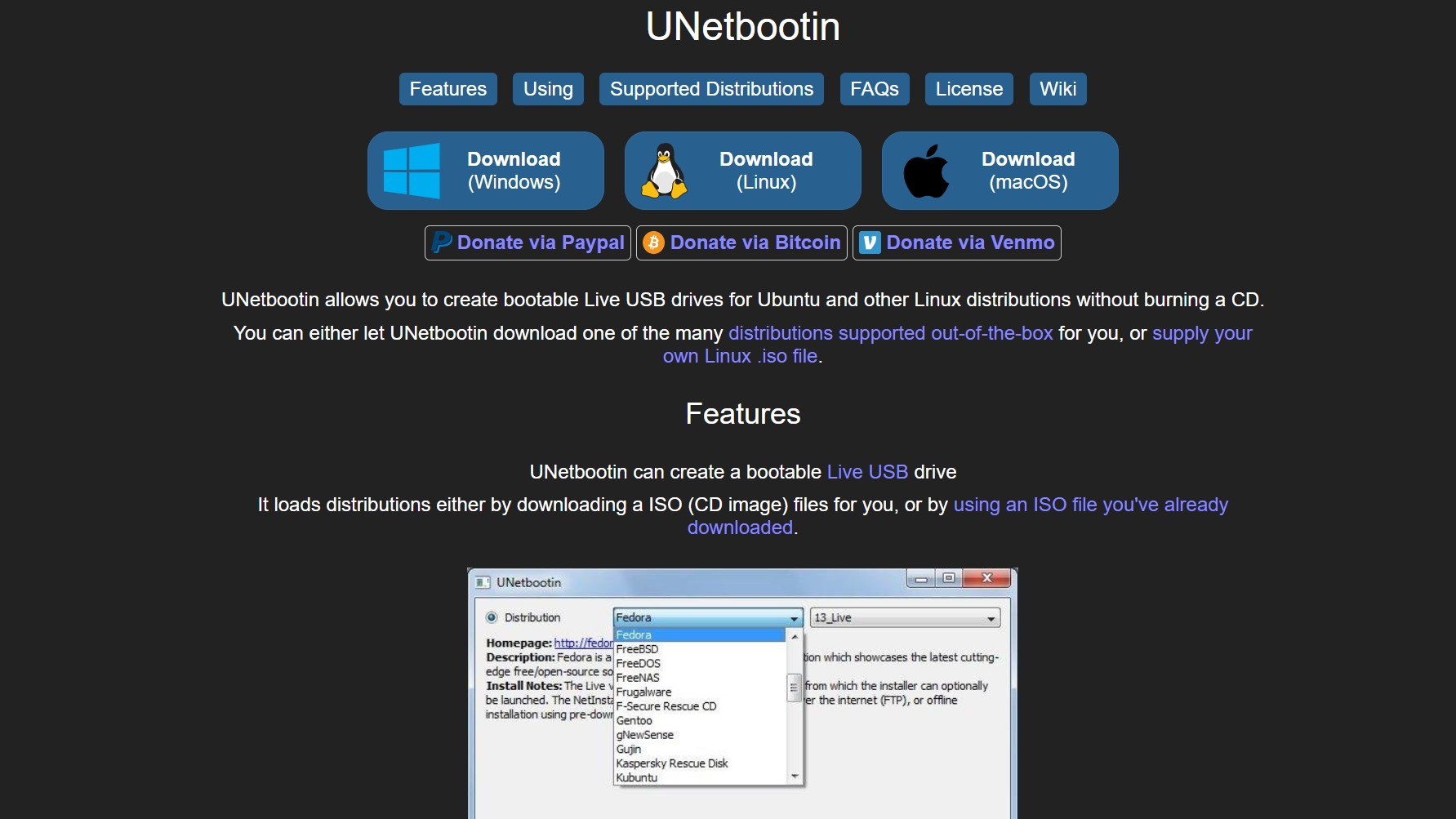
With those solid specs and my bootable USB drive in hand, I went to start the installation. Equally anyone who has always had to reinstall Windows 10 or restore Windows x knows, information technology can be a massive pain in you-know-what. They've overcomplicated getting to the BIOS to change your boot preference. Once upon a time, all you had to do was only hold down the F2 or F10 keys while the system was booting to get to the BIOS menu. I tried that method, and although I could get to it and made the changes, they never stuck, and at starting time, I couldn't figure out why. Then I got frustrated and had ice cream and took the nighttime off.
Upon offset light, I remembered that the last time I did a restore, I went through the settings bill of fare in Windows x, weaved my manner to the Recovery page and selected Advanced startup with USB stick at the fix Next, I selected kick up from USB and was off to the races. By the way, the fastest way to become to the Recovery page is to simply go into settings, type BIOS in the search bar, and it will take you lot correct there.
After that, information technology was all a slice of cake. When Ubuntu starts to install, it volition inquire you near division the hard drive or wiping information technology clean and installing. I chose to partition and install to use Ubuntu Studio and see how information technology does against my PC and MacBook.
Ubuntu Studio pattern: Advent
No matter what rendition of Ubuntu I use, it always feels like it has taken the best parts of Windows and Mac and melded them together. Ubuntu Studio uses the KDE plasma user interface over the Ubuntu kernel. It'southward spotless with its navy bluish and graphic groundwork that kind of looks like a wrong tattoo decision subsequently a long night out. If you want to change the appearance, just click on the start push (a blueish orb) on the upper left-hand side. You tin change certain aspects similar background and color scheme like yous would any other Bone.
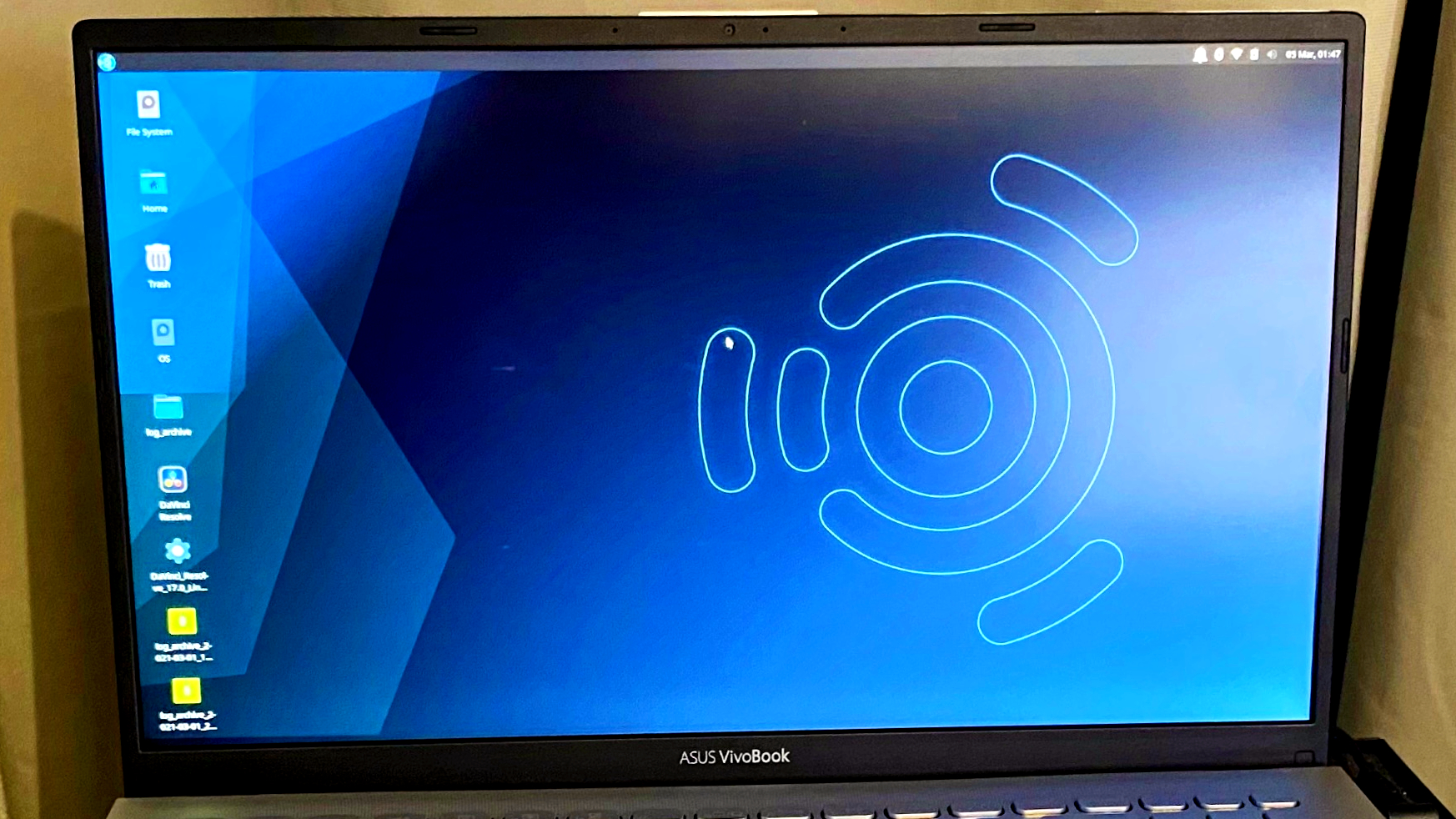
On the primary page, you lot volition notice the Home file, File System, Trash bin, and OS icon. In the upper left-hand corner is the Start button, which takes y'all to all your other applications and system settings. You'll find a systems tray on the upper-right-hand corner with an alert bell, Bluetooth, Wi-Fi, Bombardment life, and volume icons. At that place's also the date and time. And that's it; there are no pop-up toolbars to speak of or notifications surfacing to annoy you lot.
Each icon, when clicked, has a simple drop-down menu that provides you with the standard options y'all will detect on any Bone. If you're unfamiliar with Ubuntu, it takes a few mins to find things. Just information technology'southward the same experience overall and you will learn how to move around speedily. The stripped-down interface volition remind you of an earlier, yet tighter version of Windows and macOS. Honestly, I wish the team over at Google would take some notes for Chrome Os.
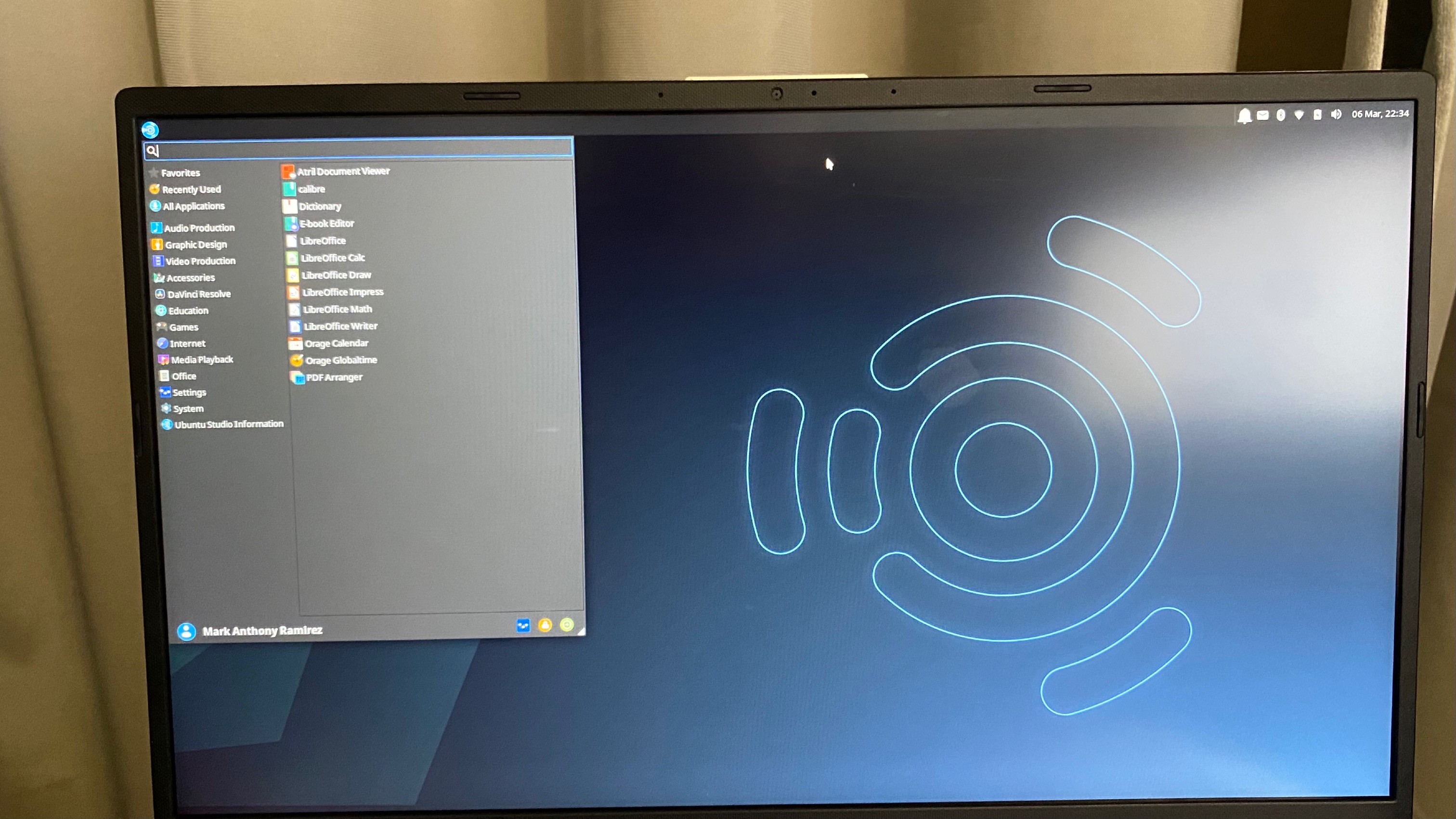
Ubuntu used to suffer from lag when using the mouse pad or mouse and the UI used to feel a little cartoonish, simply both complaints accept been remedied. It boots upwards quickly, and information technology runs smoothly.
Considering Ubuntu is costless, yous may expect adware or bloatware of some kind, only there's none. When you click on the blue orb first push, a drib-down menu appears with a search bar, and beneath it is a list broken down into genres of apps. When yous click on the icon for that genre, the corresponding software volition appear inside the dropdown menu on the right.
Ubuntu Studio: Creative Software suites
It'due south not called Ubuntu Studio for nothing. It comes with a plethora of software defended to creating all kinds of content, from video, audio, graphics and photography. Pressing the Blue start push button will call up a drop-down menu where you will observe production software broken downward by genre: audio, video, graphic design and photography. At that place's an overwhelming amount of software options, many of which are unnecessary.
I wish whoever put this together would've tested each out and then put the best ones in the Os instead of leaving it to the user to try them all and find out for themselves.
Whether information technology's macOS or Windows, both come with proprietary software. Withal, on Windows, that software is normally pretty bones (I'yard looking at you lot MS Paint) or is just awful (MS video editor). If yous're using a Mac, you lot know iMovie is a fine video editor and you tin can do some incredible things in Garageband.
Considering Windows and Mac are in the mainstream, their proprietary software is fairly ubiquitous. With Ubuntu and the open-source Linux ecosystem, yous have to exercise your research to find out which apps volition best conform your needs. By having so many similar apps that don't stand out from 1 some other, Studio eats up time that content creators could be using to, um, create. Instead, you tin can stop up testing or trying out up to 23 dissimilar audio category apps when one Garageband-type app would exercise.
Past the way, there are subcategories of apps nether a few of the sound ones. It truly tin get a highway to hell. Everyone you can recollect of is there, just some of the apps are confusing. Here are the five I think you should apply: Brazenness, Ardour, Effects, Instruments, and Midi Utilities. That'south it; the rest are overkill or exercise the same affair.
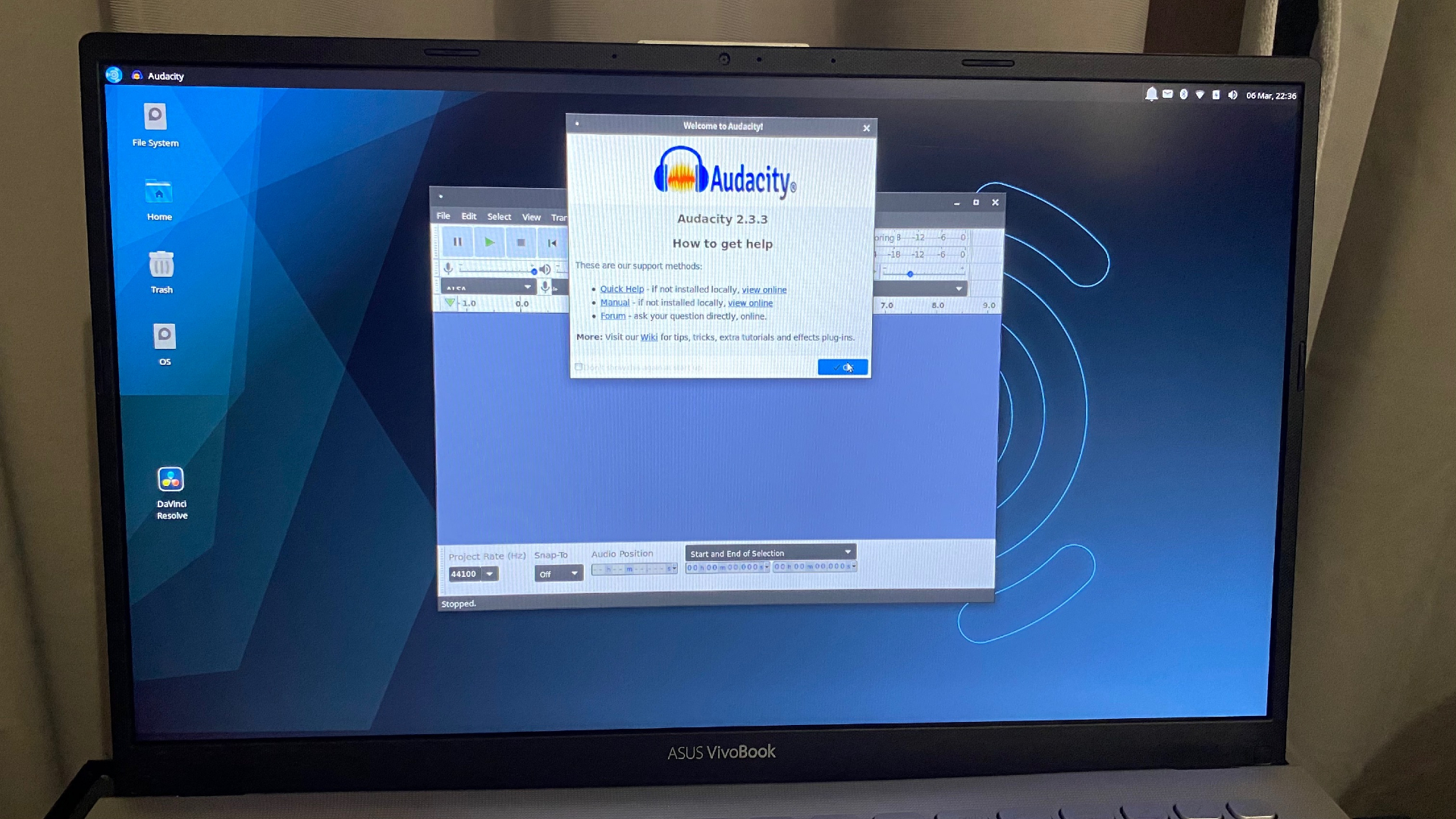
If you've survived your audio app adventure, you'll find yourself in the Graphic Design genre facing downwards 15 different apps, two with subcategories. For my fellow photographers who employ Capture 1, there is Raw Therapee for uploading and editing your Raw photo files and Darktable. Both are solid performers that are in a constant state of growth and updated regularly.
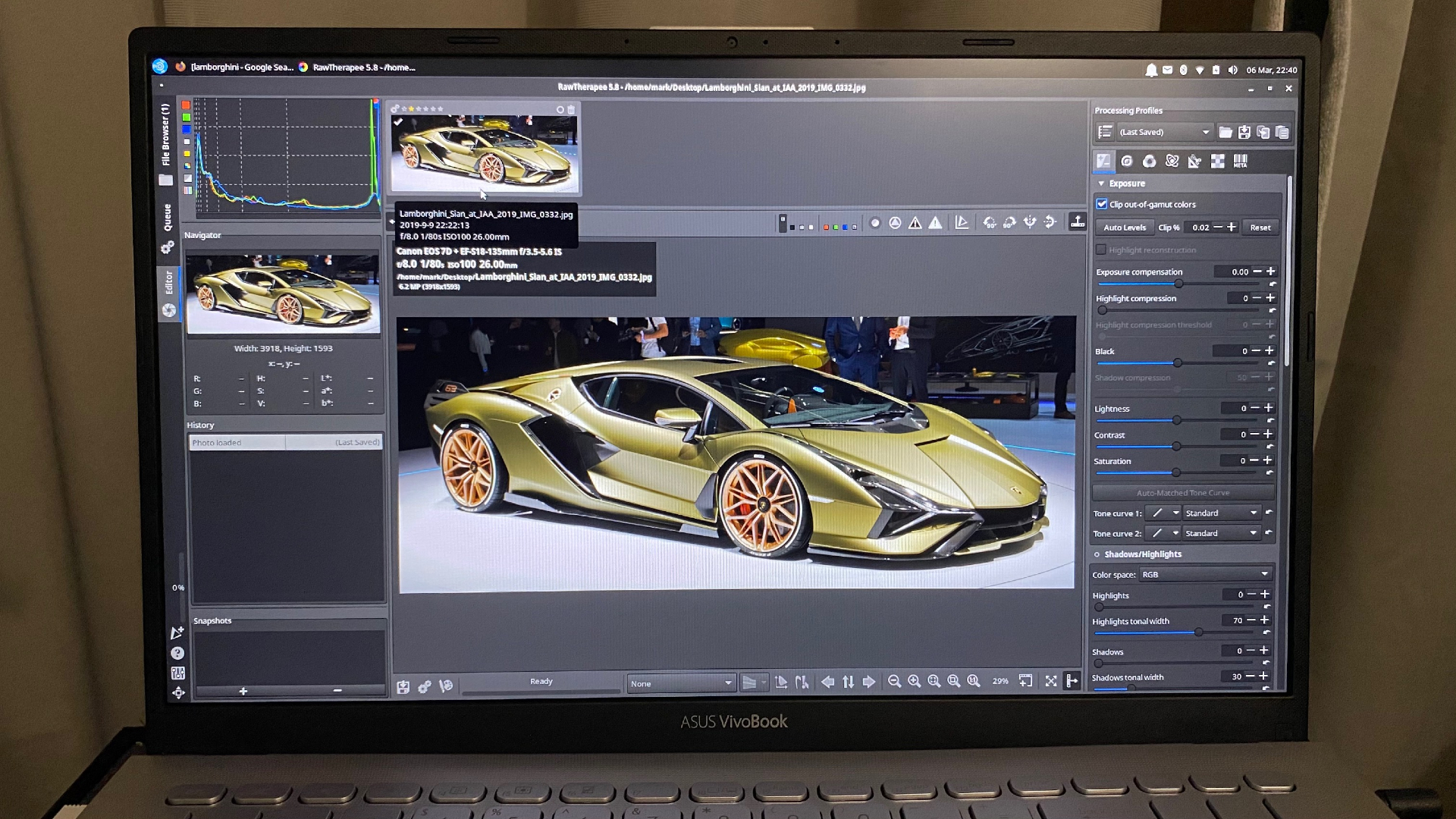
For those wanting to create 3D graphics, in that location is Blender. Y'all take the GIMP photo and graphic editing software suite, which is the open up-source equivalent of Photoshop. There's even an open up-source version of Pigment. Why? Because somebody out there had a sense of humor.
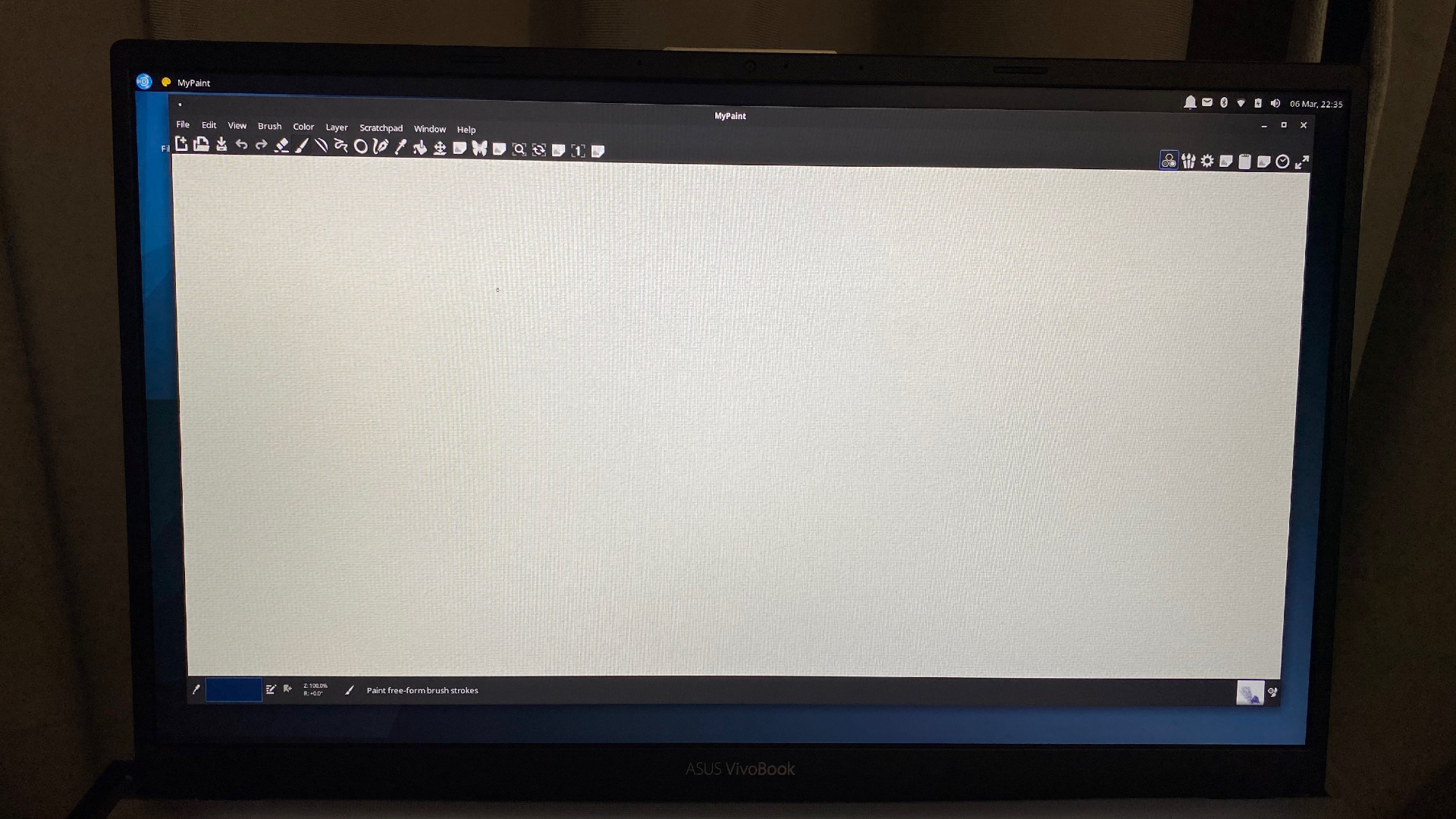
Moving onto the video product category, we notice 12 apps that cover everything from editing video to streaming video content. I tried the video editors Pitivi, Kdenlive, Openshot and of the three, Kdenlive worked the best. Although information technology had minor hang-ups and freezes, Kdenlive had the best UI. However, I somewhen downloaded Blackmagic Blueprint'south Davinci Resolve 17 (free version) for Linux operating systems equally my go-to editor.
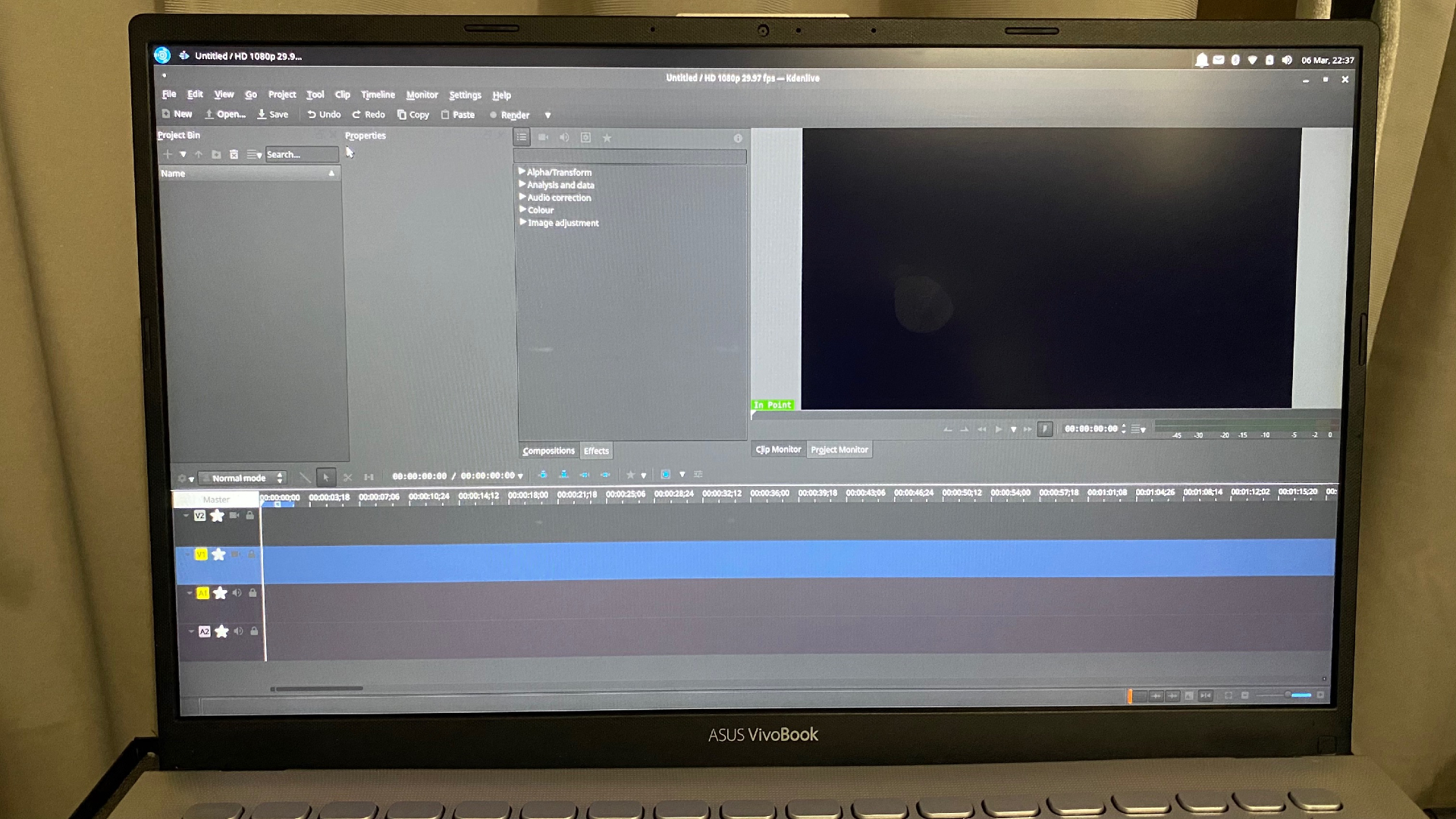
The people who make Ubuntu Studio should just brand Resolve the primary video editor. Why waste time with wonky software? Lastly, the other software I recommend from the video suite is OBS for streaming.
There are also media players available such as the Parole Media player, which does an excellent chore. Y'all tin also download the VLC media player, which should also exist native simply isn't.
Overall, the creative software suites are solid, with the sound and graphic editing suites being far more usable than the video editing one. Once again, it would behoove them but to pick the app with the most functionality that works the all-time as the default app instead of overwhelming content creators with options just for the sake of diverseness. The average person just wants to boot up and become to work, not piecemeal projection development using apps to do a lilliputian of this and a fiddling of that.
Ubuntu Studio: Firefox
Firefox is Ubuntu Studio'due south native web browser in most of the Ubuntu builds. I beloved Firefox and was a long-fourth dimension user until Google Chrome came along and stole my heart. Firefox is fast, secure, and has many smashing extensions and features.
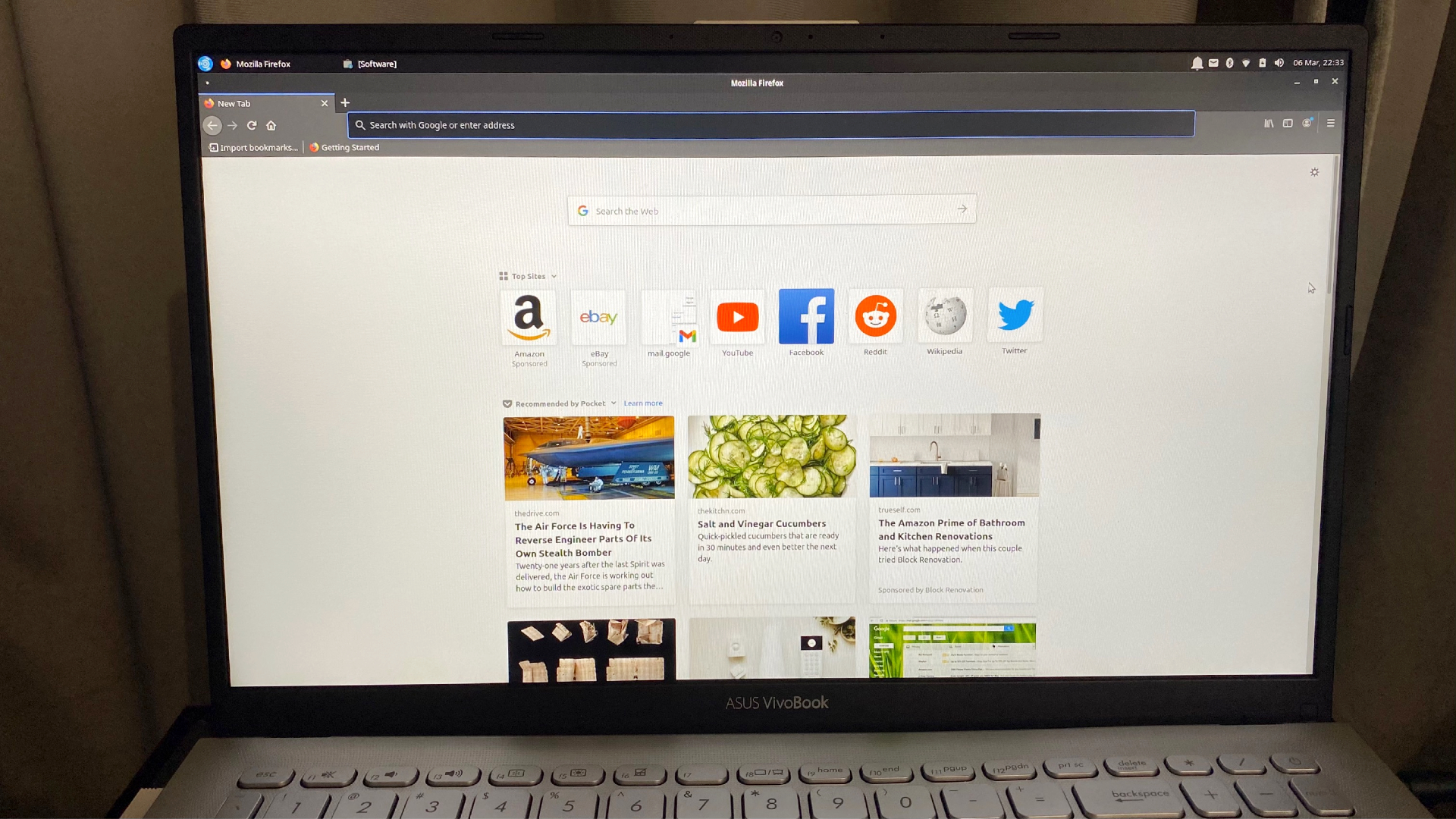
I of the coolest features is the video pop-out window that allows you to focus on your work, but continue to lookout a small window with your video content of pick. Firefox is an manufacture leader in user privacy with its total cookie protection, granting users a great deal of control over what data is shared. Merely as importantly, the browser encrypts your browsing history. In that location is even a VPN yous can purchase to use via Firefox for $2.99 a month. Overall, it'southward a super make clean browser that is highly customizable.
Ubuntu Studio: Piece of work and productivity software
The Ubuntu Studio Bone comes with the LibreOffice suite and can handle all of your certificate-creation needs with not much of a learning curve. It's as easy to get acquainted with as Google Docs, except in that location's no demand to be tethered to the cloud.
LibreOffice is where you tin can create documents, spreadsheets or presentations. At that place'southward even an eBook editor. The UI is a little bland, and it volition take getting used to, but it'due south a quick adjustment.
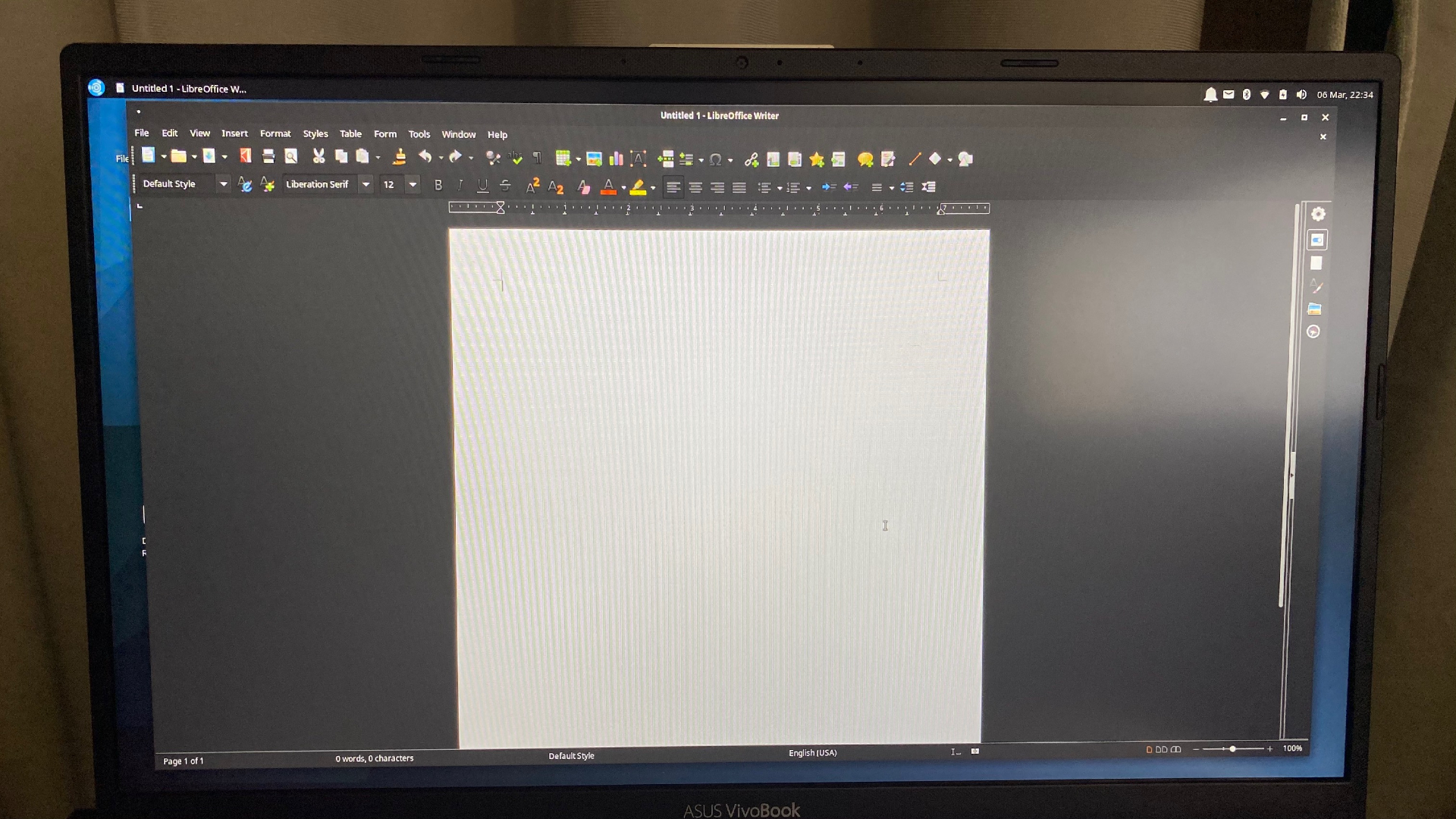
Scribus is a tool for creating and editing PDF documents. There are lovely templates for posters, business cards, brochures, and it is a lot similar Microsoft Publisher.
Calibre makes things piece of cake for users to create EBooks by providing perfect templates for standard formats, such as Amazon Kindle, various tablets and other hardware readers.
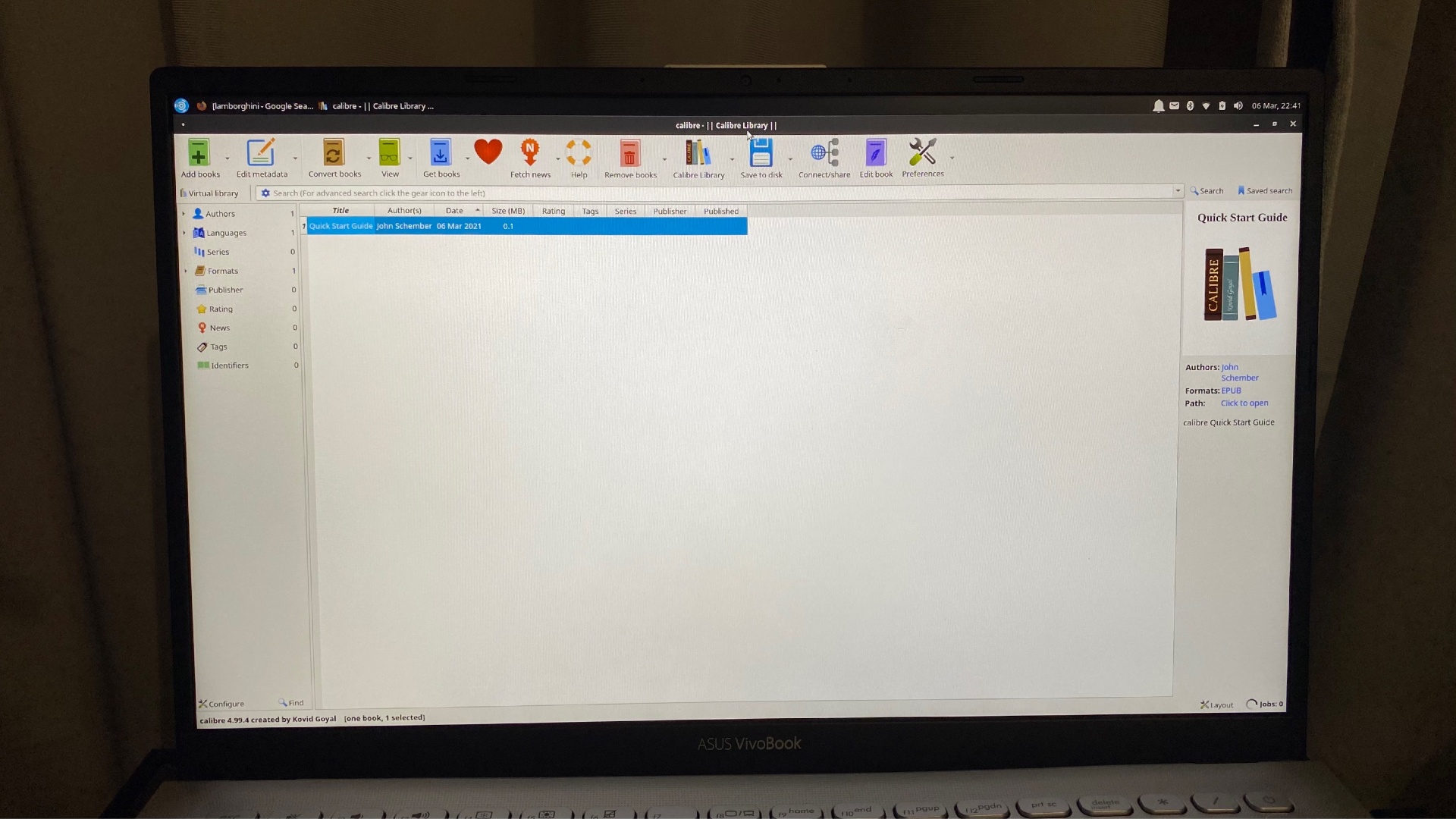
ThunderBird postal service is i of my all-time favorite applications that you volition find on Ubuntu and that you lot can also download for either your PC or Mac. With Thunderbird, yous tin can easily set every e-mail address you may have, and the UI is super user-friendly.
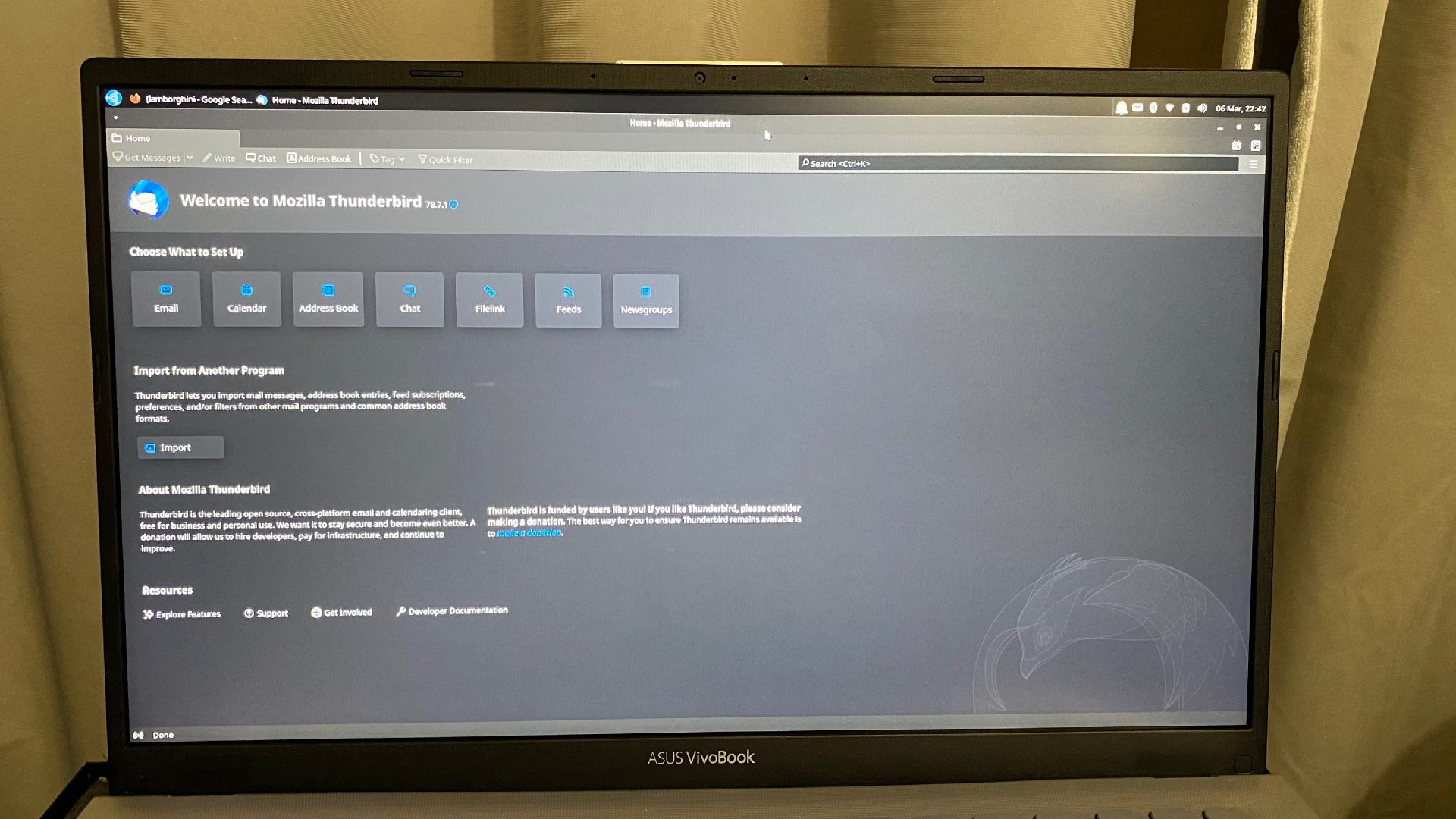
Also, some games are available via the app software store in Ubuntu when yous're not feeling very productive.
Ubuntu Studio: Messaging
Ubuntu Studio comes with the Pidgin messaging app, which practical and works well. You tin can connect your various messaging accounts to it, like AIM (are people still using this?), Google Talk, Group Wise, ICQ (this even so exists?) IRC, Simple, Sametime and Zephyr.
Lesser line
Linux operating systems and open-source software suites extend the lifespan of our gadgets. Best of all, you can not merely use it on a Ubuntu organisation, but y'all can also find versions of them that will work within macOS and Windows 10.
Why is this important? Because again, nosotros all tin can't afford to buy a new laptop at a moment'southward notice or find room in our budgets for Adobe Creative Suite, Capture One, Role 365 and and then on. However, we still have to observe a manner to become our work washed, getting documents, photos, videos, sound projects, or graphics created.
Ubuntu grants users the opportunity to do all of those things for gratis if they have an older device that may be struggling with the latest versions of macOS and Windows x. You can breathe new life into your old computers and keep working until you tin purchase a new auto, and that's a cute thing. Exist warned though; things tin can get buggy occasionally, and yous could find yourself learning some coding to gear up pocket-sized bug you may experience.
All in all, Ubuntu Studio is a winner, only over time, you lot will find its limitations frustrating. However, if you're up to the chore and open to learning some code, it could become a lot of fun and allow yous to salvage up for the system you really want.
Source: https://www.laptopmag.com/reviews/ubuntu-studio-review
Posted by: bookwolk1995.blogspot.com


0 Response to "Ubuntu Studio review | Laptop Mag"
Post a Comment